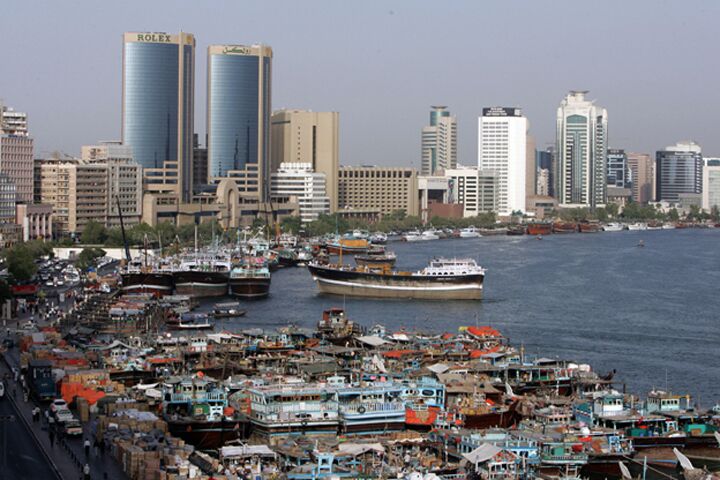
U.S. Goods Flood Iran
Trade in U.S.-branded goods is booming between Iran and its Persian Gulf neighbors. Traders on boats ranging from 13-meter wooden dhows to 1,000-ton merchant vessels, originating from the United Arab Emirates (uae) and other Arab nations, cross the straits daily, their holds stuffed with General Electric appliances, Hewlett-Packard computer equipment and other American-branded products.
“Anything made in America is popular,” says Reza, an Iranian merchant based in Dubai, as his crew prepares a shipment of products carrying American household names.
Customs laws in the uae only require customs officials to look at the port of origin for cargo, not whether or not the corporation that manufactured the product outside the U.S. is really an American company. With U.S. goods coming via Asia, there is no legal reason to seize them, reports uae customs inspector Marwan Ali Hasan.
“We don’t confiscate goods based on brands, American or otherwise,” Hasan said. “We follow the manifest. If it’s an American brand manufactured in another country, we release it.”
And so American-branded products exported to Dubai make sail for Iran, even though the U.S. has imposed unilateral sanctions on the nation, and even though according to the U.S. Treasury, goods, technology or services “may not be exported, re-exported, sold or supplied, directly or indirectly” to Iran.
Much of this illegal trade occurs across the Strait of Hormuz, in plain sight of two U.S. battle fleets, each with its own aircraft carrier, submarines and support vessels.
Frustratingly to some, much of this trade with Iran is indirectly protected by the U.S. Navy, whose job is to stop arms smuggling and protect the flow of oil through Hormuz.
“It’s not our mission,” Lieutenant John Gay, a spokesman for the U.S. Fifth Fleet, said. “If there aren’t terrorists or weapons onboard, they’re free to go.”
While coalition forces continue to protect the Strait of Hormuz, Arab merchants transport their American cargos relatively free from hostile encounters, criminal gangs or pirates. It’s a lucrative trade, made more lucrative by free U.S. and coalition-brand protection.
For America, the flaunting of its sanctions reveals just how little international support it has in its effort to isolate Iran. Many countries are failing to help Washington prevent Tehran from obtaining nuclear weapons, and at home Americans themselves are losing heart for a confrontation with Iran. Even American-based companies are possibly exporting goods to Iran while the powerful U.S. Navy stands by.
Iranians enjoying Hewlett-Packard printers is not the issue. Rather, trade of U.S. goods in defiance of American sanctions and within easy reach of American might displays a dangerous lack of respect for the U.S. as a superpower. In the Persian Gulf, American authority is a cheap import. This is another warning sign that America’s influence and power is giving way.
